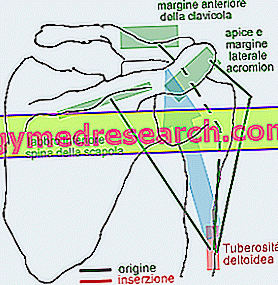Definition
Calcinosis is a disorder characterized by the formation of deposits of calcium salts in soft tissues, for example in the skin, periarticular tissues and muscles.
Calcinosis generally represents the consequence of an excessive concentration of calcium in the blood; it can be diffuse (present in most of the body) or localized (for example, limited to the skin and subcutaneous tissues, especially of the upper limbs).
Cutaneous calcinosis is a typical symptom of scleroderma; it is characterized by one or more subcutaneous deposits, similar to nodules, evident above all in the joints. These nodules are mobile, well defined and hard to touch. Sometimes, the calcium deposits open out and allow a whitish concretion to escape.
Calcium can also be deposited in tissues altered by other diseases: secondary calcinosis is associated with sarcoidosis, hypervitaminosis D, renal failure, dermatomyositis and some tumors.
Possible Causes * of Calcinosis
- Kidney failure
- Multiple myeloma
- Scleroderma



